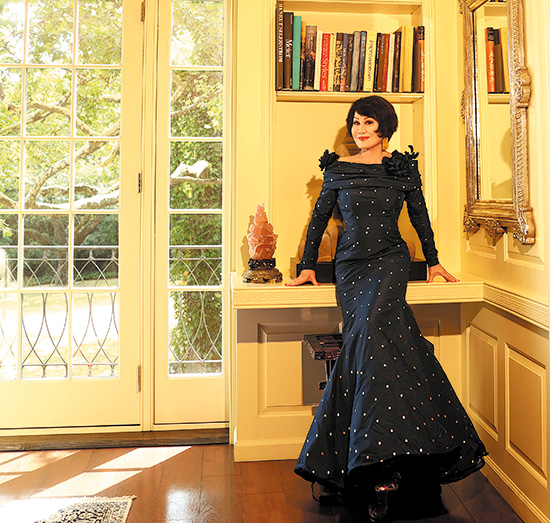Media pioneer keen to tell an optimistic story
Yue-Sai Kan connected East and West during freewheeling period amid changing times, Chen Nan reports.


Television personality
Kan was born in 1946 in Guilin, Guangxi Zhuang autonomous region, and grew up in Hong Kong. In 1968, while majoring in piano at the Hawaii campus of Brigham Young University, Kan entered a beauty pageant sponsored by the local Chinese Chamber of Commerce. She won second place, and as a result got to travel around the world. The life-changing experience marked the beginning of her career in fashion, beauty, communication and cultural exchange.
In 1972, she moved to New York and created the weekly television series Looking East, the first of its kind to introduce Asian cultures and customs to a growing US audience. It aired for over a decade, garnering critical acclaim and winning dozens of awards, making her one of the first TV journalists to connect East and West.
In 1986, Kan returned to China, producing and hosting the television series One World, which aired on State-owned China Central Television. It was the first show ever hosted by a Chinese-American on the television network, and was a national sensation. With a weekly viewership of 300 million, Kan embarked on journeys to every corner of the globe, giving a new generation of Chinese a transformative glimpse of the outside world. The TV show made her a household name in China. Even her trademark haircut and fashion style fascinated people at the time.
Other important projects of hers include the ABC documentary China: Walls and Bridges, which explored different forms of spirituality in the country over the ages, earning her a coveted Emmy Award.
"Television is a good business to be in, not so much to make money but to grow your brain. Through this work I've had the fortune to meet a lot of very interesting people and learn a great deal from them," says Kan, adding that one special program she made in 1988 and still loves is Journey through a Changing China, which aired in the United States. Starting from her hometown Guilin, she traveled across the country, ending in Northeast China's Heilongjiang province, documenting how the daily lives of people had changed over the course of the country's reform and opening-up since 1978.
She also mentions that her interview with Mother Teresa, winner of the 1979 Nobel Peace Prize, was "truly an amazing moment" in her career.
"I worked in China for almost 40 years, a period coinciding with China's opening-up. I was there to witness and contribute to the country's breakneck pace of change. This rare experience has given me a unique vision. As I say all the time, if I stay away from China for six months, I already miss so much of what is happening there! The Chinese saying 'a year — small change, three years — big change' has held true all this time," Kan says.




































